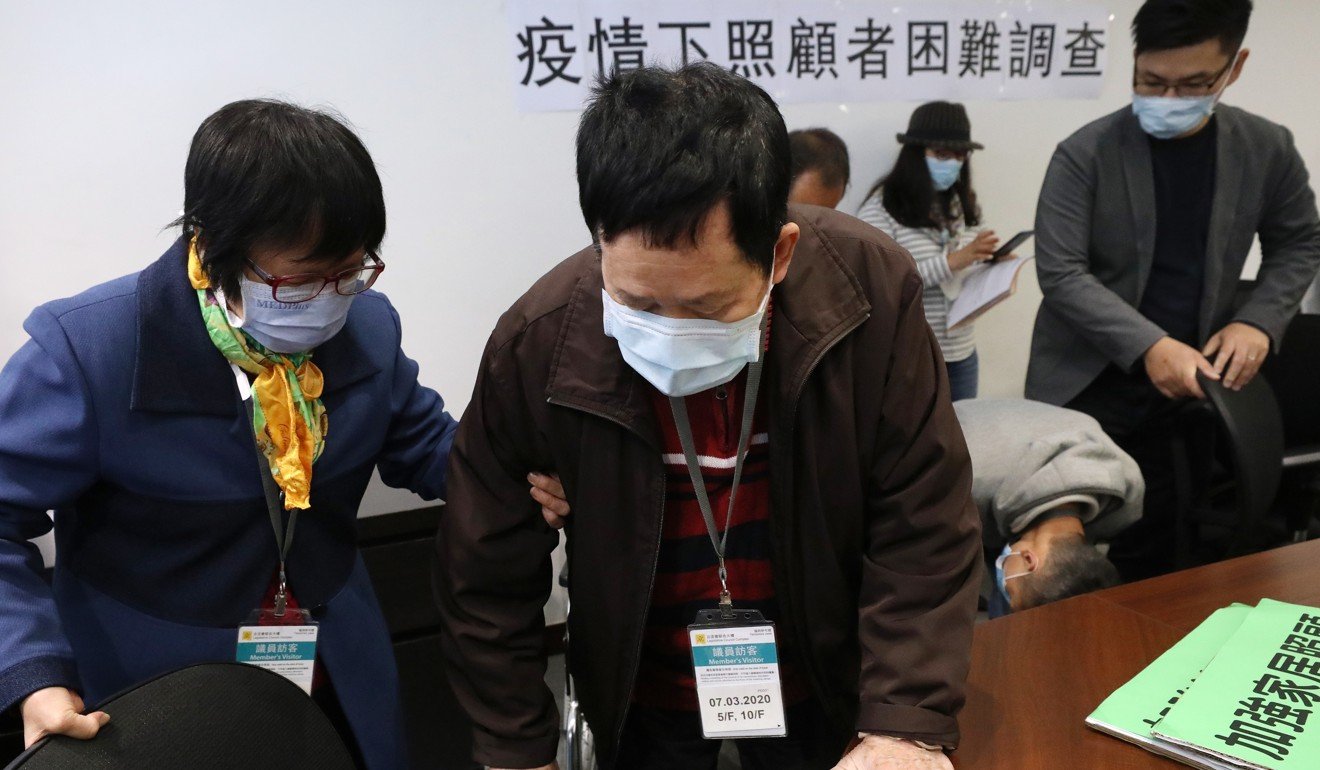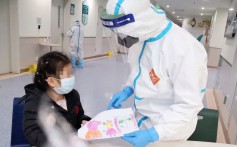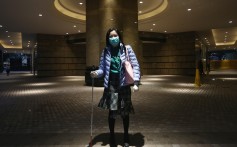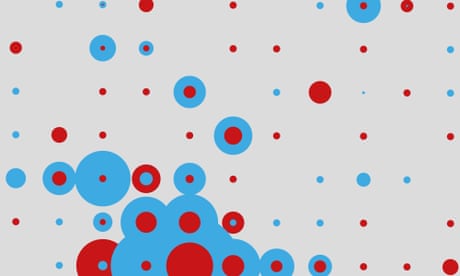- Joined
- Jun 27, 2018
- Messages
- 30,097
- Points
- 113
Its common knowledge that the wuhan virus is no less deadly than the flu and the fear of it is causing more problems than the virus itself. This is due to the authorities overreacting and making mountains out of molehills. And yet it still continues. If the people are stupid due to the overreaction. The authorities are even more retarded by harping on the virus and coming up with their containment policies and talking crap.
Our fear of coronavirus could be 'far more contagious than the disease itself'
Posted Fri 6 Mar 2020 at 8:54pm
Fear of the new contagion, it would seem, has infected the globe.(AP: Kim Jun-beom via Yonhap)
"The only thing we have to fear is fear itself."
Franklin D Roosevelt was, of course, responding to the economic and social turmoil of the Great Depression, and the "nameless, unreasoning, unjustified terror" that had left the nation paralysed.
But, as scenes of barren supermarket shelves are broadcast into living rooms across the country, and confirmed cases of coronavirus are tallied like sport, you'd be forgiven for thinking there are some parallels.
Fear of the new contagion has, paradoxically, become a global infection.
But it's not for the reason you might think.
'Emotions are contagious'
Karin Wahl-Jorgensen, a professor at Cardiff University, has spent the past decade studying the role of emotions in journalism — and coronavirus is no exception.
Amid foreboding headlines like "killer virus" and "deadly disease", she began tracking media coverage of the outbreak, starting from initial reports about the new "mystery illness" on January 12 up until February 13.
Almost 100 high-circulating, English-language newspapers from around the world collectively published 9,387 stories about the virus during this period — and of those, 1,066 mentioned "fear" or related words, like "afraid".
"By contrast, over the same period — which is actually the high period for seasonal influenza — we're looking around 400 stories covered in this way, and fewer than one-in-ten of those stories actually mentioned fear or similar phrases," Professor Wahl-Jorgensen said.
Unlike previous epidemics, Professor Wahl-Jorgensen adds, coronavirus is playing out through the lens of a "hybrid media system", where traditional mainstream media and social media collide.
This decade-old map showing global air travel was passed off as illustrating the spread of coronavirus.(Twitter)
"This fear leads people to take actions to perhaps prepare themselves for the apocalypse, which might actually be socially counterproductive," Professor Wahl-Jorgensen said.
"Things like hoarding face masks or, as we've seen in Australia, buying absolutely insane amounts of toilet paper.
"That is something individuals do because they want to take some action to address the fear they feel. But they're not rational or productive from a social point of view."
'Observing other people is the cue for us'
Fear is, at its most basic, a survival mechanism — think "fight or flight".
It's highly adaptive and can be triggered by more than just personal experience with a perceived threat (say, for example, being bitten by a dog).
"One is observation, so if you see someone else being bitten by a dog [that can trigger a fear of dogs]," says Ottmar Lipp, a research professor in Curtin University's School of Psychology.
"The other is information that we receive in other means. So, one way of becoming afraid of going to the beach, for instance, is watching Jaws."
Professor Lipp believes our fear of coronavirus and a prospective pandemic is multifaceted.
There's the fear of the unknown. The fear of disease. The fear of illness. The fear of contagion.
And that fear, paradoxically, can spread through populations just as seamlessly.
"Particularly if the person who shows that fear is in a position of authority or who someone relies on for their cues."
Are some of us more prone to fear than others?
Australians have seen this fear play out in real time as the impending threat of a coronavirus pandemic has seen supermarket shelves stripped of toilet paper, canned goods, hand sanitiser and bottled water.
For some, it's out of fear of facing two weeks in self-isolation without supplies. For others, it's out of fear of running out of toilet paper — virus or no virus.
Could not display Tweet
Though it may have garnered headlines across the globe, it is not a phenomenon unique to Australia.
Similar responses have been well-documented during times of economic and social instability.
During the Brexit impasse, for example, a quarter of UK voters said they had started taking precautions against the adverse consequences of a "no" deal, including stockpiling food, toiletries and medicines.
Similar scenes have been observed in the United States, where winter storms coincide with a sudden spike in demand for bread, milk and eggs.
While there are varying schools of thought around our psychological response to panic buying, it begs the question: are some of us simply more prone to feeling fear than others?(Supplied)
While there are varying schools of thought around our psychological response to panic-buying, it begs the question: are some of us simply more prone to feeling fear than others?
"[There are] individual differences, some people are more anxious than others, which may come from genetics," says Professor Lipp.
"There's a certain propensity of inherent fears, but it's also the experience of when you grow up.
"So, one of the predictors of being anxious for a child, for example, is how anxious mum and dad are."
'Is stockpiling toilet paper really helping us?'
So, how do you maintain a sense of equilibrium when faced with an "unjustified terror", as Roosevelt alluded to?
Professor Wahl-Jorgensen believes it comes down to careful analysis of the cold, hard facts.
"Because we see these constant tallies of the number of new cases of coronavirus, that leaves a sense of urgency to the situation," she says.
"I imagine if we had a similar breakdown of the number of influenza cases, we would see similar public concern about influenza."
Taking a break from rolling coverage around the disease is also beneficial, adds Professor Lipp, who recommends, first and foremost, listening to the experts.
"See what objective information we actually have, how dangerous is it for us, what can we do to minimise the risk and the dangers?
"[And ask yourself] is stockpiling toilet paper really helping us in that situation? Most likely not."
Watch
Duration: 30 minutes 17 seconds
30m
Our fear of coronavirus could be 'far more contagious than the disease itself'
Posted Fri 6 Mar 2020 at 8:54pm
Fear of the new contagion, it would seem, has infected the globe.(AP: Kim Jun-beom via Yonhap)
"The only thing we have to fear is fear itself."
Franklin D Roosevelt was, of course, responding to the economic and social turmoil of the Great Depression, and the "nameless, unreasoning, unjustified terror" that had left the nation paralysed.
But, as scenes of barren supermarket shelves are broadcast into living rooms across the country, and confirmed cases of coronavirus are tallied like sport, you'd be forgiven for thinking there are some parallels.
Fear of the new contagion has, paradoxically, become a global infection.
But it's not for the reason you might think.
'Emotions are contagious'
Karin Wahl-Jorgensen, a professor at Cardiff University, has spent the past decade studying the role of emotions in journalism — and coronavirus is no exception.
Amid foreboding headlines like "killer virus" and "deadly disease", she began tracking media coverage of the outbreak, starting from initial reports about the new "mystery illness" on January 12 up until February 13.
Almost 100 high-circulating, English-language newspapers from around the world collectively published 9,387 stories about the virus during this period — and of those, 1,066 mentioned "fear" or related words, like "afraid".
"By contrast, over the same period — which is actually the high period for seasonal influenza — we're looking around 400 stories covered in this way, and fewer than one-in-ten of those stories actually mentioned fear or similar phrases," Professor Wahl-Jorgensen said.
Unlike previous epidemics, Professor Wahl-Jorgensen adds, coronavirus is playing out through the lens of a "hybrid media system", where traditional mainstream media and social media collide.
This decade-old map showing global air travel was passed off as illustrating the spread of coronavirus.(Twitter)
"This fear leads people to take actions to perhaps prepare themselves for the apocalypse, which might actually be socially counterproductive," Professor Wahl-Jorgensen said.
"Things like hoarding face masks or, as we've seen in Australia, buying absolutely insane amounts of toilet paper.
"That is something individuals do because they want to take some action to address the fear they feel. But they're not rational or productive from a social point of view."
'Observing other people is the cue for us'
Fear is, at its most basic, a survival mechanism — think "fight or flight".
It's highly adaptive and can be triggered by more than just personal experience with a perceived threat (say, for example, being bitten by a dog).
"One is observation, so if you see someone else being bitten by a dog [that can trigger a fear of dogs]," says Ottmar Lipp, a research professor in Curtin University's School of Psychology.
"The other is information that we receive in other means. So, one way of becoming afraid of going to the beach, for instance, is watching Jaws."
Professor Lipp believes our fear of coronavirus and a prospective pandemic is multifaceted.
There's the fear of the unknown. The fear of disease. The fear of illness. The fear of contagion.
And that fear, paradoxically, can spread through populations just as seamlessly.
"Particularly if the person who shows that fear is in a position of authority or who someone relies on for their cues."
Are some of us more prone to fear than others?
Australians have seen this fear play out in real time as the impending threat of a coronavirus pandemic has seen supermarket shelves stripped of toilet paper, canned goods, hand sanitiser and bottled water.
For some, it's out of fear of facing two weeks in self-isolation without supplies. For others, it's out of fear of running out of toilet paper — virus or no virus.
Could not display Tweet
Though it may have garnered headlines across the globe, it is not a phenomenon unique to Australia.
Similar responses have been well-documented during times of economic and social instability.
During the Brexit impasse, for example, a quarter of UK voters said they had started taking precautions against the adverse consequences of a "no" deal, including stockpiling food, toiletries and medicines.
Similar scenes have been observed in the United States, where winter storms coincide with a sudden spike in demand for bread, milk and eggs.
While there are varying schools of thought around our psychological response to panic buying, it begs the question: are some of us simply more prone to feeling fear than others?(Supplied)
While there are varying schools of thought around our psychological response to panic-buying, it begs the question: are some of us simply more prone to feeling fear than others?
"[There are] individual differences, some people are more anxious than others, which may come from genetics," says Professor Lipp.
"There's a certain propensity of inherent fears, but it's also the experience of when you grow up.
"So, one of the predictors of being anxious for a child, for example, is how anxious mum and dad are."
'Is stockpiling toilet paper really helping us?'
So, how do you maintain a sense of equilibrium when faced with an "unjustified terror", as Roosevelt alluded to?
Professor Wahl-Jorgensen believes it comes down to careful analysis of the cold, hard facts.
"Because we see these constant tallies of the number of new cases of coronavirus, that leaves a sense of urgency to the situation," she says.
"I imagine if we had a similar breakdown of the number of influenza cases, we would see similar public concern about influenza."
Taking a break from rolling coverage around the disease is also beneficial, adds Professor Lipp, who recommends, first and foremost, listening to the experts.
"See what objective information we actually have, how dangerous is it for us, what can we do to minimise the risk and the dangers?
"[And ask yourself] is stockpiling toilet paper really helping us in that situation? Most likely not."
Watch
Duration: 30 minutes 17 seconds
30m











 PHOTO: Little Creatures brewery in Fremantle is just one restaurant that has been hit by cancellations. (ABC News)
PHOTO: Little Creatures brewery in Fremantle is just one restaurant that has been hit by cancellations. (ABC News) PHOTO: The Little Creatures brewery is a popular destination for tourists and locals. (ABC News: Giulio Saggin, file photo)
PHOTO: The Little Creatures brewery is a popular destination for tourists and locals. (ABC News: Giulio Saggin, file photo) PHOTO: Ms Xian says this is the quietest she has seen the City Garden Chinese Restaurant in 15 years. (ABC News: Evelyn Manfield)
PHOTO: Ms Xian says this is the quietest she has seen the City Garden Chinese Restaurant in 15 years. (ABC News: Evelyn Manfield) PHOTO: Good Fortune Roast Duck House restaurant in Northbridge lies almost empty on a weekend. (ABC News: Evelyn Manfield)
PHOTO: Good Fortune Roast Duck House restaurant in Northbridge lies almost empty on a weekend. (ABC News: Evelyn Manfield) PHOTO: Quan Chen runs the Good Fortune Roast Duck House in Perth. (ABC News: Evelyn Manfield)
PHOTO: Quan Chen runs the Good Fortune Roast Duck House in Perth. (ABC News: Evelyn Manfield)
 PHOTO: It could be some time until we understand just how much COVID-19 will hit the economy, Gareth Hutchens writes. (AP: Chinatopix)
PHOTO: It could be some time until we understand just how much COVID-19 will hit the economy, Gareth Hutchens writes. (AP: Chinatopix) PHOTO: It is still uncertain exactly how heavily the health system will be impacted. (AAP: Darren England)
PHOTO: It is still uncertain exactly how heavily the health system will be impacted. (AAP: Darren England) PHOTO: Experts are scrambling to understand how the virus will affect the economy — here and abroad. (Unsplash: Benedikt Geyer)
PHOTO: Experts are scrambling to understand how the virus will affect the economy — here and abroad. (Unsplash: Benedikt Geyer) PHOTO: The rush of shoppers stockpiling supplies is having an impact on the retail sector. (Supplied: Michael McCarthy)
PHOTO: The rush of shoppers stockpiling supplies is having an impact on the retail sector. (Supplied: Michael McCarthy) PHOTO: The Reserve Bank slashed interest rates last week. (Getty: Saeed Khan)
PHOTO: The Reserve Bank slashed interest rates last week. (Getty: Saeed Khan)




